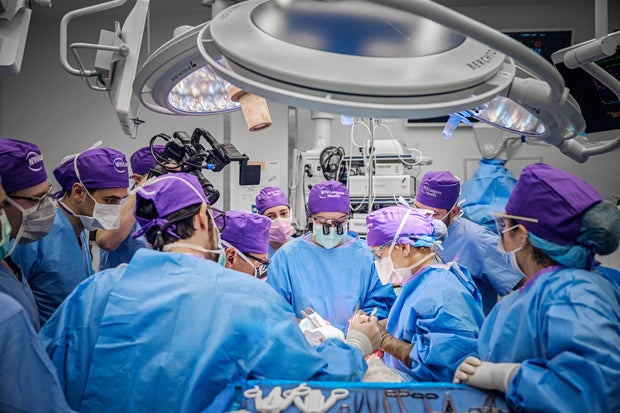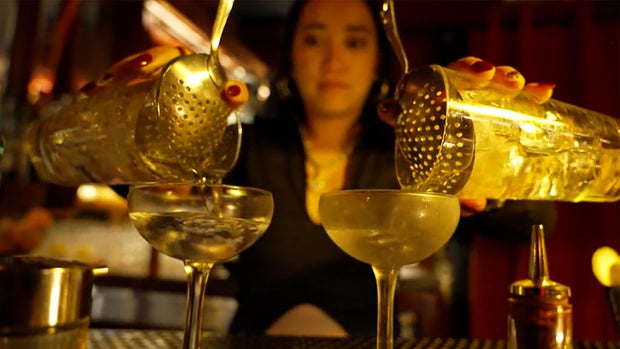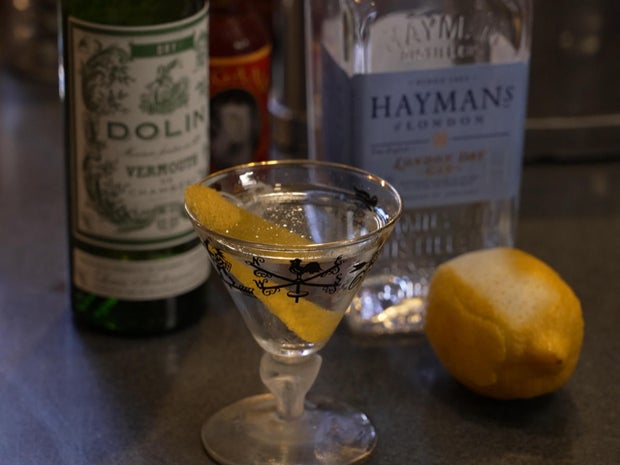CBS News
Man’s eye transplant recovery leaves doctors “truly amazed” after live wire accident
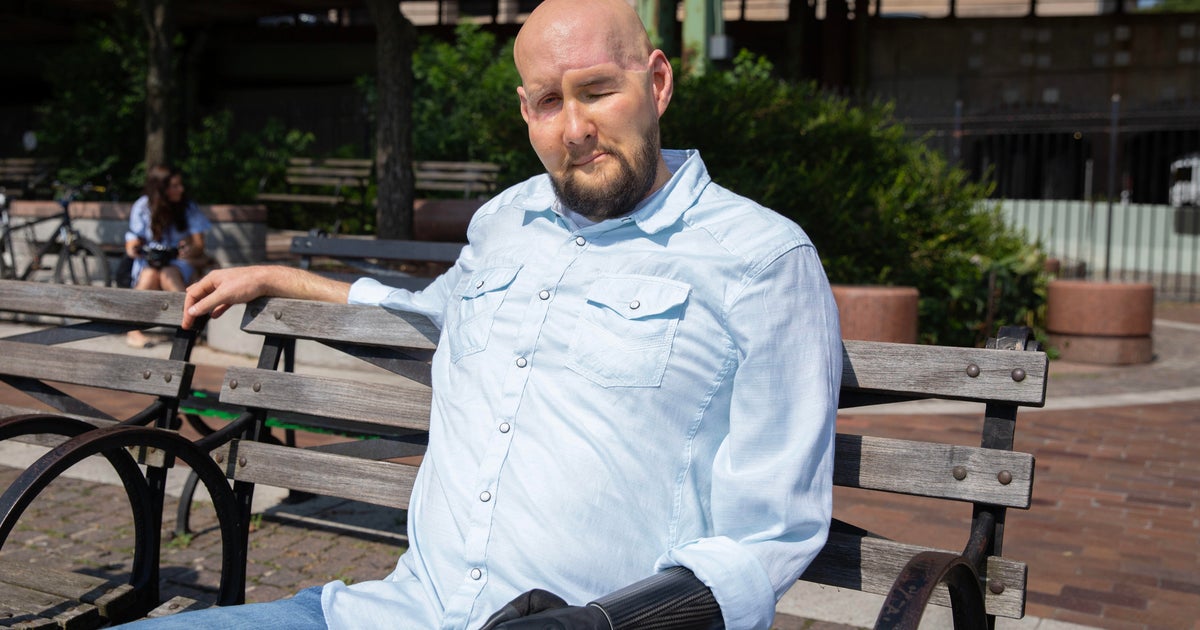
A veteran who received the world’s first whole-eye transplant recently traded in his old license plate, featuring his injured face, for a new one showing off his recovery.
Utility line worker Aaron James lost most of his face in a June 2021 work incident when he accidentally touched a 7,200 volt live wire. Doctors performed the world’s first whole-eye and partial-face transplant in May 2023 and now James is back to daily life.
“I’m pretty much back to being a normal guy, doing normal things,” James said in a press release from NYU Langone Health in New York City. “All in all, though, this has been the most transformative year of my life.”
While his sight hasn’t returned, doctors are hopeful for what the transplant could mean going forward.
The life-changing accident
James doesn’t remember the accident, CBS News previously reported. He was rushed to a regional burn unit after accidentally touching a live wire while holding a ground wire in his left hand, NYU Langone said.
Dr. Eddie Rodriguez, one of James’ doctors for the transplant, previously said he was in “bad shape. They have to amputate his arm [above the elbow], so right at the midarm. His face is destroyed.”
Joe Carotta / NYU Langone
James was in a medically induced coma for six weeks and spent more than three months in the burn unit of a Dallas hospital, according to NYU Langone. When he woke up, he had lost his nose, his front teeth, his left eye and his dominant left hand. He also lost his chin down to the bone, 20% of his tongue, his left cheek and his lips.
Recovery process
The National Guard veteran, who served three tours in Iraq , Kuwait and Egypt, underwent multiple reconstructive surgeries, but he still couldn’t eat or drink normally. James also had trouble speaking, so he agreed to undergo a face transplant, including the world’s first transplant of a donor eye.
While he regained the ability to taste, smell and eat solid foods, James’ sight has not returned. Doctors say his transplant gives them “hope for the future of whole-eye transplants with an aim to restore sight” because a test shows the eye’s light-sensitive nerve cells survived the transplant.
“We are truly amazed by Aaron’s recovery, with no episodes of rejection,” Dr. Rodriguez said. “Our methodical approach to the matching process, ensuring that Aaron received the most favorable donor match, along with our unique immunosuppression regimen, has set the standard for eliminating and avoiding early rejection episodes.”
Moving forward
The next step in eye transplants is preserving nerve cells during the process, Dr. Paul Glimcher, director of NYU Langone’s Neuroscience Institute and chair of the Department of Neuroscience and Physiology, said.
“The critical task ahead is to ensure that all of the eye cells survive the transplant, which is essential for restoring connections to the brain,” Dr. Glimcher said. “That is the fundamental requirement for vision, as sight is primarily a function of the brain, not just the eyes.”
Haley Ricciardi-NYU Langone Health
Doctors plan to continue working with James to try and understand how they can restore sight.
“I have felt honored to be patient zero,” James said. “Even if I can’t see out of my new eye, I’ve gained my quality of life back, and I know this is a step forward in the path to help future patients.”
He also has something else to look forward to: sending his daughter off to college.
“I’ve been given the gift of a second chance, and I don’t take a single moment for granted,” James said.
CBS News
Serving up home-cooked dog food

Watch CBS News
Be the first to know
Get browser notifications for breaking news, live events, and exclusive reporting.
CBS News
What makes a martini a martini?

Watch CBS News
Be the first to know
Get browser notifications for breaking news, live events, and exclusive reporting.
CBS News
What makes a martini a martini?
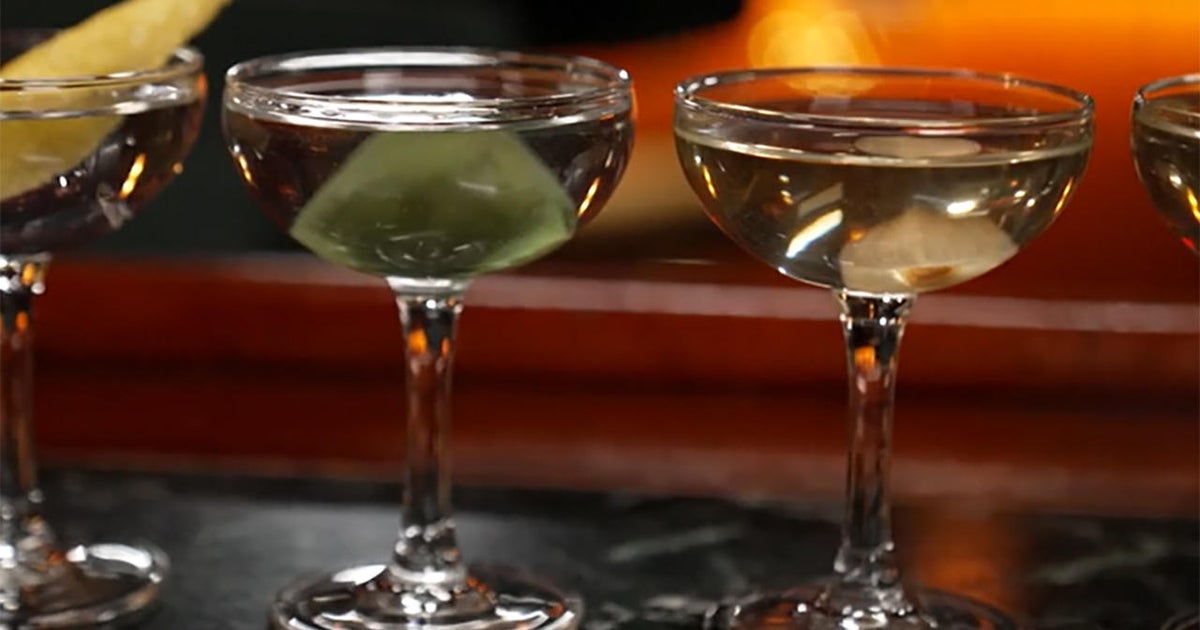
Nowadays, what makes a martini a martini? Robert Simonson, who wrote a book about the martini, said, “It’s funny: it’s strict and loose at the same time.”
Ten Speed Press
Everyone seems to have an opinion about the cocktail: “Ingredients, proportions, garnishes – it’s all subject to debate,” Simonson said. “I’m a purist. I would think it needs to be gin and vermouth. But I’m willing to bend and say, ‘Okay, vodka and vermouth as well.’ [However,] if there’s no vermouth in there, I don’t know how you can call it a cocktail.”
Simonson says the martini was probably named after a vermouth company. It was invented in America in the 1870s or ’80s when bartenders mixed gin with vermouth, a fortified wine made with herbs and spices. “It’s a very big player in cocktail history,” he said.
In the early 20th century, the “very-dry” martini became very-popular: Ice cold gin or vodka, garnished with a lemon twist, or an olive, or an onion, but only a little vermouth (or maybe not even a little).
Samantha Casuga, the head bartender at Temple Bar in New York City, says the reason why many people might not want vermouth in their martini is because, for years, vermouth was stored improperly. “It should be in the fridge,” she said.
CBS News
Casuga’s classic martini is two parts gin, one part vermouth, with a twist of lemon. She suggests that you probably shouldn’t order it the way James Bond does – shaken, not stirred. Casuga says she’s always stirring, but some people like the show behind the bar when a bartender shakes their cocktail. “Definitely, people love a good shake,” she said.
People also love to have a martini made just the way they want it. But Casuga understands why they might be so specific: “To have your own preferences, not only listened to and then executed, is, like, that’s luxury itself.”
Writer Robert Simonson says that a martini can also add a little luxury to your Thanksgiving. “It actually makes very good sense for Thanksgiving,” he said. “It will whet your appetite for the meal to come.
“There are very few American inventions more American than the martini. So, an American holiday, American drink.”
CBS News
For more info:
Story produced by Mary Raffalli. Editor: Remington Korper.
“Sunday Morning” 2024 “Food Issue” recipe index
Delicious menu suggestions from top chefs, cookbook authors, food writers, restaurateurs, and the editors of Food & Wine magazine.


